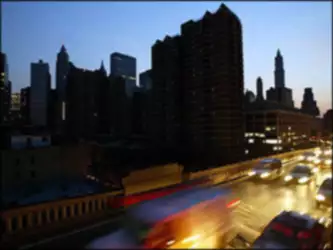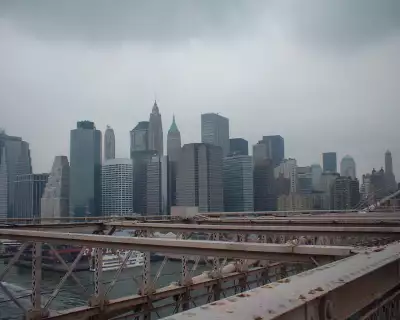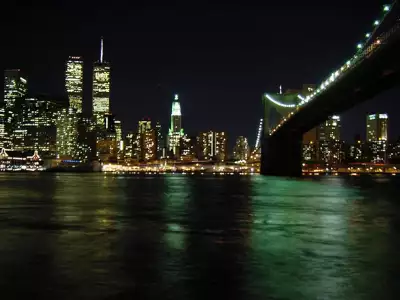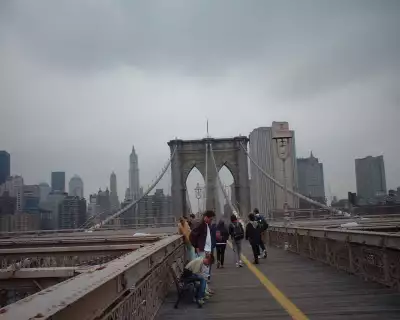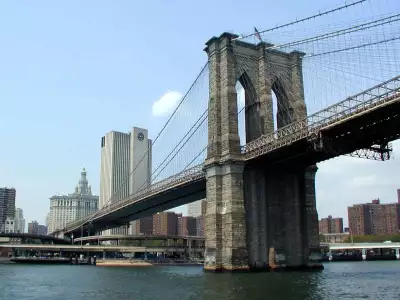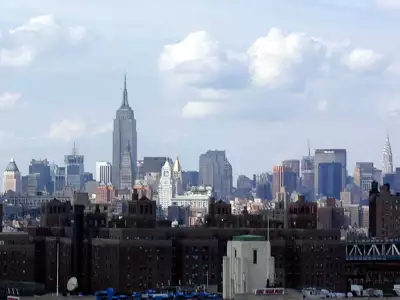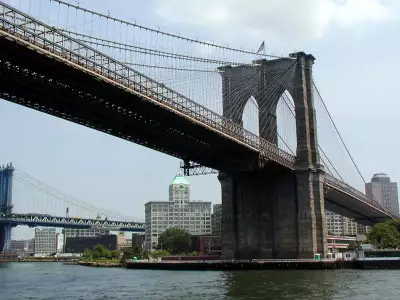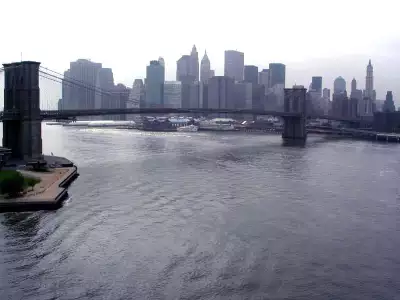Brooklyn Bridge at night
Brooklyn Bridge at night Wallpaper is free to download high quality desktop and mobile wallpaper with many resolutions up to 800x600 pixels
The Brooklyn Bridge is one of the oldest suspension bridges in the United States, spanning the East River from Manhattan to Brooklyn.
Nearly 1.3 miles long, it was opened for use on May 24, 1883, after 14 years of construction. On that first day a total of 1,800 vehicles and 150,300 people crossed. The bridge cost $18 million to build and approximately 27 people died during its construction. A week after the opening, on May 30, a rumor that the Bridge was going to collapse caused a stampede which crushed twelve people.
At the time it opened, it was the longest suspension bridge in the world, and has become a treasured landmark. Since the 1980s, it has been floodlit at night to display its architectural features.
The bridge was designed by an architectural firm owned by John Augustus Roebling in Trenton, New Jersey. Roebling and his firm had built smaller suspension bridges, such as the John A. Roebling Suspension Bridge in Cincinnati, Ohio and the Waco Suspension Bridge in Waco, Texas, that served as the engineering prototypes for the final design.
As construction was beginning, Roebling's foot was seriously injured in an accident; within a few weeks, he died of tetanus. His son, Washington, succeeded him, but was stricken with caisson disease (bends), due to working in compressed air with the sand hogs, and was only able to limitedly talk or move. Washington's wife, Emily Warren Roebling, trained herself in engineering so she could communicate his wishes to the builders. Washington Roebling was unable to leave his home and watched the construction via binoculars.
At the time the bridge was built, the aerodynamics of bridge building had not been worked out. It would take until the collapse of the Tacoma Narrows Bridge and the technology of the 1950s before bridge models could be tested in wind tunnels. Roebling solved the problem that collapsed the Tacoma Narrows Bridge by designing a bridge truss system that was six times as strong as he thought it needed to be. Because of this, the Brooklyn Bridge is still standing when many of the bridges built around the same time have vanished into history and had been replaced. This is also in spite of the nefarious substitution of inferior quality wire in the cabling supplied by a contractor - by the time it was discovered it was too late to replace the cabling that had already been constructed. Roebling determined that the poorer wire would leave the bridge four rather than six times as strong as necessary, so it was eventually allowed to stand.
At various times, the bridge has carried horses and trolley traffic; at present, it has lanes for motor vehicles, and a separate level for pedestrians and bicycles.
References to "selling the Brooklyn Bridge" abound in American culture, sometimes as examples of rural gullibility but more often in connection with an idea that strains credulity. For example, "If you believe that, I have a wonderful bargain for you . . ." However, see also Victor Lustig.
The bridge was placed on the National Register of Historic Places on June 17, 1977 and on March 24, 1983 the bridge was designated a National Historic Engineering Landmark. The construction of the Brooklyn Bridge is detailed in a film by Ken Burns. (source: www.wikipedia.com)
Download Wallpaper
Details
- Filesize: 52.06 KB
- Resolution: 800x600
- Category: Brooklyn Bridge
